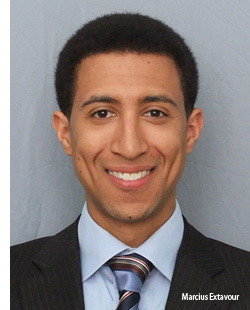
Culture shock can be at once the thrill and the bane of international travel. We must adapt to local culture, learn the language, and deal with stereotypes and others’ perceptions—or misperceptions—of who we are. These same lessons apply to professional “travel” and “relocation,” by which I mean working outside of one’s “home” profession—perhaps as an advisor to policymakers, for example, or in a managerial capacity at a company.
Scientists face a series of stubborn and pervasive personal stereotypes in outside work and study environments. This post outlines some of the most common caricatures and some suggestions for educating people about who scientists really are.
The solo operator
An individual working alone at a desk or lab bench, late into the night. Do you recognize this image of the scientist from media and pop culture? I don’t mean to suggest that science is not done in this way, as much of it is. However, this is clearly not the only work style. Single author papers are rare. Research collaborations abound, and they are encouraged by funders. Research groups rely on teamwork and many moving parts.
Yet those working outside of mainstream science often believe that we have no experience with teamwork and management hierarchies. We may therefore be either passed over for work or confined to individual tasks.
To push back, we must emphasize the collaborative side of science and our ability to thrive in managed teams. Though research hierarchies may not be as developed as they are in government or large corporations, most science groups rely on seniority (summer students, research associates, postdocs, staff scientists, PIs), a range of experience (undergraduates, technicians, senior faculty), and institutional hierarchies (grant writers, administrators) to manage talent and work flow.
Narrow expertise
There is no question that science requires deep focus and attention to detail. Subject matter expertise is the foundation on broader knowledge and skill in science are built. Yet our deep and narrow focus as scientists can work against us in the eyes of generalists. When working in a new area, for instance, the scientist is often asked how their work is relevant to the new field. This is a fair question, since clearly not all scientific knowledge is universally applicable. From my own work, for example, the Kramers-Kronig relations generally have nothing to do with solar PV markets.
But if we take a step back from the cutting edge of our individual fields, we may find that connections between our specialized research and outside topics may emerge. To continue the example, light absorption in solids is certainly connected to solar electricity economics through PV device performance.
The connections may be indirect, but the overlap need only be large enough to build upon. It is important that scientists look for these connections, emphasize them to colleagues, and use them to maximize contributions to new areas.
Rigid, deaf to nuance, uncreative
Pop culture and media reinforce the broad misconception that scientists lack creativity, and that they are too rigid to adapt to surroundings and circumstances. This would be a terrible personal reputation in any field of work! Scientists must remember, and gently remind our non-scientist colleagues, that science demands fluidity and adaptability. Old ideas are pushed aside by new ones in the face of evidence and experiment. Scientific knowledge and truth evolve, and we must all evolve with it.
Often the leaders of change are the most creative among us. They make the unimaginable seem obvious once the evidence is presented and the experiments completed. Of course there is dogmatism and rigidity in science (as in any field), but these are far from the prevailing themes. This applies equally well to individual scientists.
How to combat these stereotypes in the workplace?
Battling stereotypes is not quick or easy. Often, we are not even given the chance to fight back directly, since few people even recognize or feel comfortable talking about their personal biases. Still, being aware of the misconceptions puts us in a better position to recognize the stereotypes that may undermine our goals and address them in honest conversation.
Marcius Extavour (marcius.extavour@sciencepolicy.ca) holds a Ph.D. in atomic physics and quantum optics from the University of Toronto. He served as the 2010-2011 OSA/SPIE Guenther Congressional Science Policy Fellow, and he is an active consultant and organizer in clean energy and science policy in Toronto, Canada.
